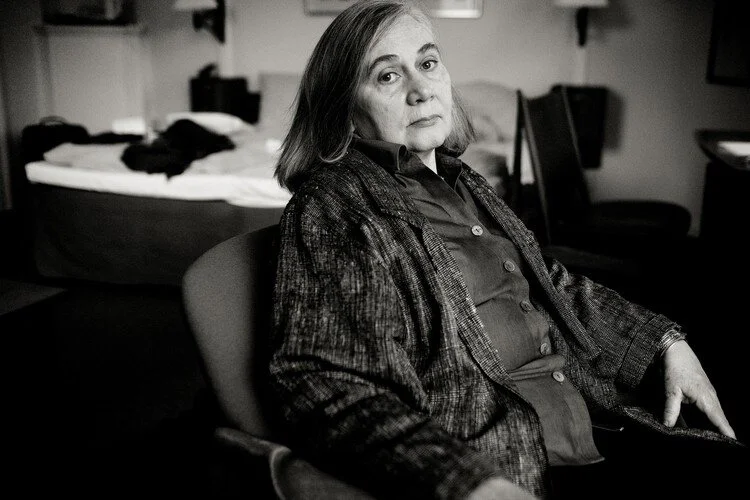#18: Marilynne Robinson and the Desire for Faith
#18: Marilynne Robinson and the Desire for Faith
February 26, 2020
Today is Ash Wednesday, the point in the liturgical calendar that marks the beginning of lent, and is usually marked by anointing people with ashes, and saying something along the lines of “Remember that you are dust, and to dust you shall return.”
I don’t think it is unique that my desire for faith is always the strongest when I think about death or dying. The promises that Christianity makes, especially around death, are radical and beautiful and utterly wild, and in the words of Fleabag’s Hot Priest, “Why would you believe in something horrible (graves, and worms, and eternal darkness, he means) when you could believe in something beautiful (eternal life)?” It’s among my central sadnesses that despite having been raised in a faith, despite having put myself in the way of faith over and over again, it hasn’t ever quite worked that way for me.
Christianity has a weird relationship to our life here on earth—in traditional conceptions, it pales in both length and beauty to a life hereafter (when we’ve been there ten thousand years / bright shining as the sun), but is also the place where we secure that later life, where all the struggle and heartbreak and work happens. There’s so much of the work inherent in a Christian life that is appealing to me, so much of this life that I’m trying to make beautiful and fulfilling that most of the time, believing (or not) in a world hereafter doesn’t feel like much of a loss. And yet.
I think I miss this the most after I’ve read a Marilynne Robinson book, especially her non-fiction. I joke that every time I read her, I emerge a kind of supercharged Calvinist for about three weeks until whatever Intense Protestant molecule I have within me has returned to its regular state, and this is mostly a joke, but it also kind of isn’t. Especially when placed next to her novels, (if you haven’t read Housekeeping yet, run to a library, now) Robinson’s essays run dry and muscularly intellectual. I don’t always agree with her, know in my mind if not always in my agitated heart that Calvinism specifically has done a lot of harm to people (including me! I trace some of my deep ambivalence to religion to a sermon on predestination, of all things, in my youth group when I was about 15. No one is ever really ready to wrestle with predestination, but I can guarantee you that a group of generally kind of shitty 15 year-olds definitely are not)—but nevertheless, she argues for a kind of faith that lifts the ceiling off the church, that sits comfortably next to mysteries, that reaches out to a neighbor as well as up towards God. The thing, I think, that I love the most about Robinson’s expressions of Calvinism is how committed she is to not allowing her faith to lead her to easy conclusions or intellectual laziness, but how, still, it’s a faith of the everyday, seemingly unconcerned with choirs of angels or eternal salvation or even hell.
This appeals to me because it’s the part of all of this that I can handle, the part of it that is about being here, now, and doing my best to get it right.
I stumbled down a little wormhole trying to find the origins of the quote, “There is another world, and it is this one,” and both the quote itself and its discursive little path into the world might come the closest to what I am trying to say here. There is maybe no single origin point or answer to any of my questions, but what matters is the meat of it. That in the end, I am after a way to live out some kind of ethics, some kind of shortcut-that-isn’t-a-shortcut to being a good person, to inhabit my own rind of the world as best I can, open to mysteries but not pinning my existence on them. To live a life that begins and ends on, if not in this little patch of soil, to treat everyone as if they came from dust and would return to it, not because they are nothing, but because that is a miracle.

